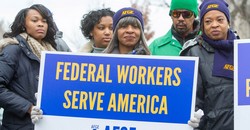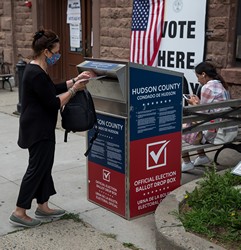As a result of the recent five-week government shutdown, 800,000 federal workers were furloughed last month, many working through the shutdown despite not receiving a paycheck.
During the shutdown, a number of banks and financial institutions announced they will assist federal employees who are trying to get by while not being paid.
Discover, Chase, Bank of America, and Wells Fargo are just a few of the many businesses offering help.
Likewise, the nation’s four major cell phone companies, T-Mobile, Sprint, Verizon, and AT&T announced they will help its customers through a variety of methods, such as holding late fees and creating flexible payment plans to keep their customers phones on.
In New Jersey, the longest shutdown in United States history has made life difficult for federal workers, Coast Guard members, and their families.
Since the government shutdown, more than 1,000 federal employees in New Jersey had applied for unemployment benefits.
The federal government shutdown cost the economy $11 billion, according to a new analysis from the nonpartisan Congressional Budget Office (CBO) released this Monday, Jan. 28.
Although most of the damage to the economy will be reversed as federal workers return to their jobs, the CBO estimated that $3 billion in economic activity is permanently lost.
Joseph Patten, Ph.D., an associate professor of political science, notes that these economic effects of the shutdown are another example that represents the dysfunction in Washington, D.C.
“Our system of government is founded on a separation of power and compromise,” he said.
Yet, in efforts to prevent the partial government shutdown and to fund the subsequent bills to reopen it, Congress failed at both.
Overall, the CBO projected economic growth will slow this year to 2.3 percent, compared with the 3.1 percent rate last year.
The analysis does not incorporate some indirect effects of the shutdown, such as the halt in some federal permits and reduced access to loans. However, the report suggests that businesses were beginning to postpone investment and hiring decisions as a result of the shutdown and warned that the risks were becoming “increasingly significant” as the impasse dragged on.
Although the federal government has since reopened, the uncertainty around the Congressional impasse forced many workers to make tough financial decisions during their leave.
Moreover, the consequences of these workers not receiving pay demonstrate the economic difficulties that so many working families across the country face.
In Bankrate’s recent Financial Security Index survey this month, thirty percent of respondents reported that either they or an immediate family member experienced at least one major unexpected expense during the past year.
Among those respondents, 60 percent admitted that they would not be able to afford an unexpected $1,000 expense, such as a car repair or a check-in to the emergency room.
Sixty-three percent surveyed that they would be bankrupted in the face of an unexpected bill that totaled to $5,000 or more.
Nearly 80 percent of Americans are currently living paycheck-to-paycheck and the bottom 20 percent of Americans by income have no savings, according to the same report.
The recent shutdown highlighted the current economic state of American workers, and did more harm to them.
IMAGE TAKEN from CNN



